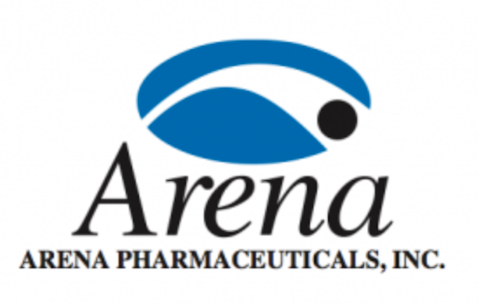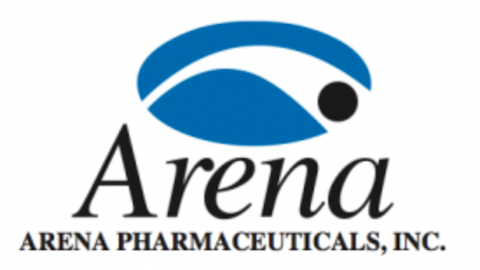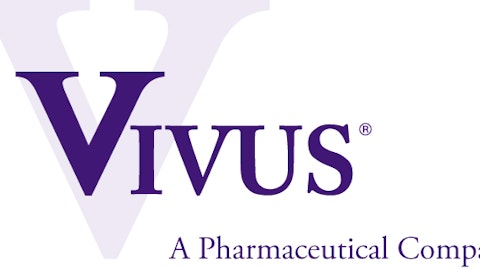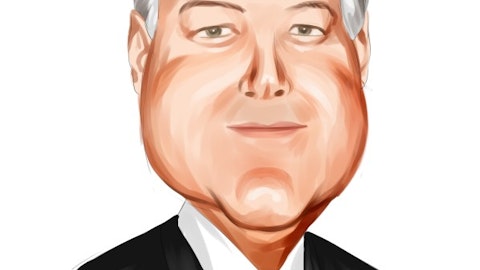Shares of Arena Pharmaceuticals, Inc. (NASDAQ:ARNA) slumped after the company said EU regulators still have questions about its weight-loss drug Belviq.
What Happened?
An advisory committee to the European Medicines Agency has asked for more information on heart valve issues, psychiatric side effects, and tumors that were detected during studies on rats. The advisory panel also asked the company to provide a risk/ benefit analysis on Belviq. Arena had asked EU regulators to approve Belviq in March 2012, and it has been addressing concerns raised by regulators in its endeavor to win marketing clearance. Arena expects the advisory committee to issue a recommendation during the first half of 2013. The U.S. Food & Drug Administration (FDA) approved Belviq in late June 2012. Arena and its partner Eisai Co., Ltd (ADR) (NASDAQOTH: ESALY) are not yet working on plans to launch in the U.S. market. Eisai is a global manufacturer of pharmaceutical products based in Tokyo, Japan. With $2.4 billion in cash and short-term investments, Eisai is in a good position to help support Belviq. Eisai recently granted an additional six months of market exclusivity in the U.S. for Aciphex due to the ruling that Eisai has met the FDA’s Written Request requirements for pediatric exclusivity for the drug. Aciphex provides short-term treatment for heartburn, duodenal ulcers, and gastroesophageal reflux disease.

Jefferies & Co. analyst Thomas Wei believes that Arena shares could be volatile because of investor uncertainty about the EU approval and pessimism about the sales potential of Belviq. Wei also says he is more bullish about the prospects of a combination of Belviq and phentermine.
The Possibility of Rejection in Europe
There is no way of predicting how the regulatory process will play out, but there are several factors that should be considered. The FDA considers Belviq to be safe. It did not require a REMS program, and the CHMP advisory committee recommendation should be available in the first half of this year, with approval following within a few months if the recommendation is favorable. This could potentially be a big advantage for the treatment because it could make Arena the only player in a huge market. Qsymia was recently rejected in the EU and an appeal against this decision is unlikely to succeed. The January CHMP meeting has ended without any action on Belviq.
Arena has disclosed the 180-day list of questions about Belviq raised by European regulators, and the list raises some difficult questions. The issues will need to be resolved before the CHMP can make a positive recommendation for marketing approval in the EU. The company says that the major objections relate to previously identified non-clinical and clinical issues, including tumors in rats, valvulopathy and psychiatric events. The CHMP further requests that it justifies Belviq’s overall balance of benefit-risk after taking these issues into consideration. In accordance with the CHMP’s process, the company has been asked to address the issues in writing. The CHMP will also consult with independent experts who will provide recommendations on the outstanding issues. Some of these concerns were raised in the 120-day list of questions from the European regulators, which indicates that the company’s responses were not entirely to their satisfaction.
Arena had already advised investors about Europe’s more stringent approval criteria for weight-loss treatments compared to the U.S. For instance, the EMA guidelines provide that clinical trials assessing drug candidates intended for weight control should subject patients to a weight reducing diet run-in period. Its Phase 3 clinical trials did not include this requirement. EMA guidelines also prescribe primary and alternative primary efficacy criteria for weight loss drug candidates. The company believes that Belviq will satisfy the EMA’s alternative primary efficacy criterion, which measures the proportion of responders achieving more than 10% weight loss at the end of a 12-month period. However, Belviq is unlikely to meet the more stringent EMA primary efficacy criterion, which prescribes a demonstration of weight loss of at least 10% of baseline weight that is also at least 5% greater than the loss associated with the placebo.
Belviq’s placebo-adjusted weight loss from its trials was 3%, well below Europe’s primary efficacy criterion. The FDA had concerns similar to European regulators about the safety and efficacy of Belviq last year. Arena was able to satisfy the FDA concerns sufficiently enough to gain approval, but this should not be seen as a certainty of approval in Europe. On a risk/benefit basis, Vivus had strong data for Qsymia, yet the application was rejected in Europe.
Conclusion
The delay in Europe is not by any means the end of the world, and the next price catalyst for the stock will almost certainly be a successful launch of Belviq in the U.S. Arena has Eisai as a marketing partner for Belviq, and the presence of a strong partner will give the company an advantage over Vivus. The weak launch by Vivus puts less competitive pressure on the company and plenty of space to make a strong initial launch.
Analysts have low expectations of initial sales. Jeffries lowered its 2013 sales forecast by 70%. An analyst at JPMorgan forecast sales of $74 million for 2013 growing to $481 million in 2016. A strong performance will provide strong upside for the stock. I recommend buying Arena with the expectation of two upcoming growth catalysts – a successful U.S. launch followed by approval in Europe.
The article 2 Growth Catalysts Could Push This Pharmaceutical Higher In 2013 originally appeared on Fool.com and is written by Jordo Bivona.
Copyright © 1995 – 2013 The Motley Fool, LLC. All rights reserved. The Motley Fool has a disclosure policy.




